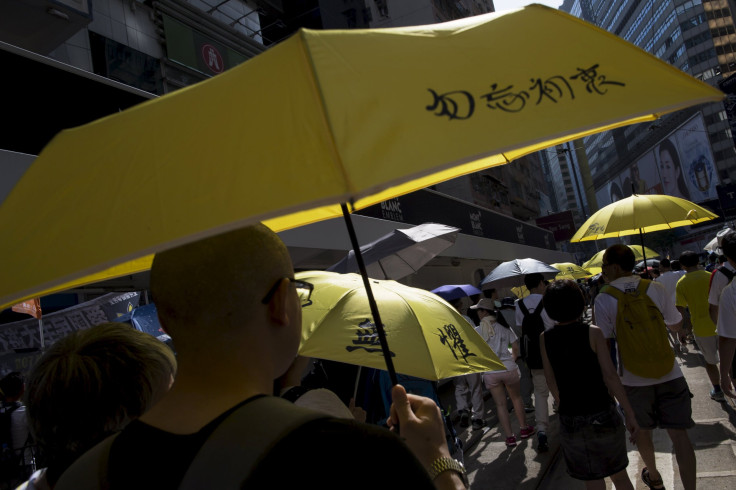Hong Kong Democracy Protest Sees Low Turnout, Heavy Security

Months after Hong Kong’s “Umbrella Movement” was forcibly cleared out by police forces, thousands of people took to the streets on Wednesday for an annual protest march on a public holiday that marks Hong Kong’s transfer to China from British rule.
Local media reports said that about 3,000 police forces would be deployed to oversee the demonstrations, which some feared would turn violent while others viewed it as simply "pointless." The turnout was reportedly thinner than expected, with only a few thousand people participating, according to the South China Morning Post.
Pro-Beijing protesters also reportedly gathered along the planned route to counter the pro-democracy marchers. Politics in Hong Kong has become splintered between those who chafe under Beijing’s rule and those who are pro-mainland.
Security was also tight at an early-morning flag-raising ceremony, Reuters reported. Helicopters were present over the event and at least one activist was barred from entering the pro-China event.
The demonstrations come seven months after student-led protests that brought major streets to a standstill for 79 days were brought to an end. However, activists and organizers say that protesters’ demands remain unchanged.
"I think Hong Kong people's determination to fight (for democracy) has not changed. We believe they will treasure this opportunity to express themselves and take part in the march," Daisy Chan, convener of the Civil Human Rights Front, told Reuters.
Last year’s anniversary march saw about 500,000 pro-democracy protesters, and resulted in over 500 arrests of people who blocked a main road in the financial district. That movement was considered a prelude to the Occupy Central movement, which began late September.
Hong Kong’s political future remains uncertain after the city’s lawmakers shot down a proposed blueprint for inaugural democratic elections in June. The plan was strongly condemned for its requirements that all candidates be vetted by the mainland, which activists called a “sham democracy,” and was scrapped by pro-democracy lawmakers. The city’s lawmakers have since said that they will leave aside the issue of electoral reform for now and focus on economic policy.
© Copyright IBTimes 2024. All rights reserved.





















